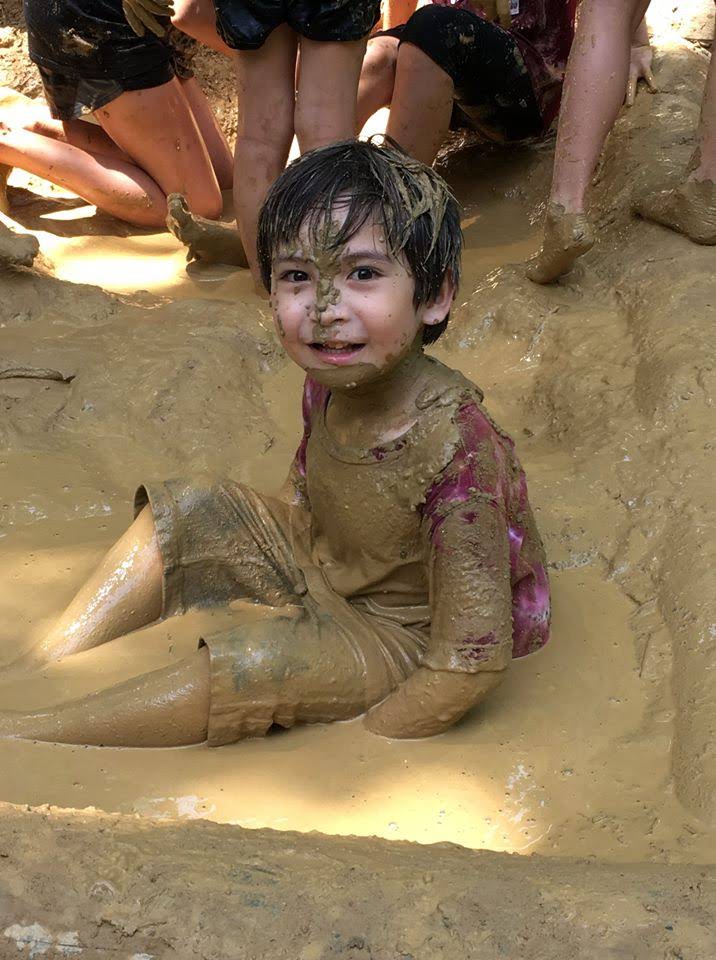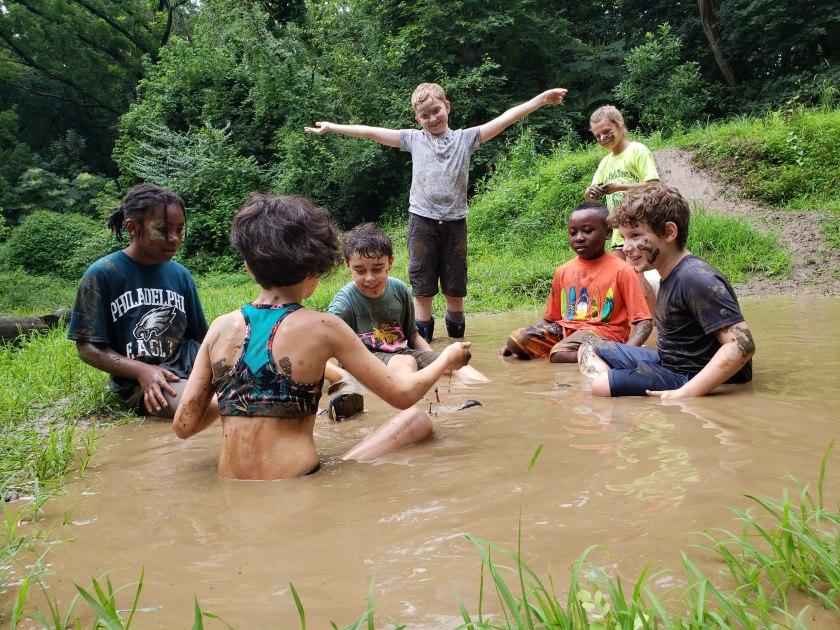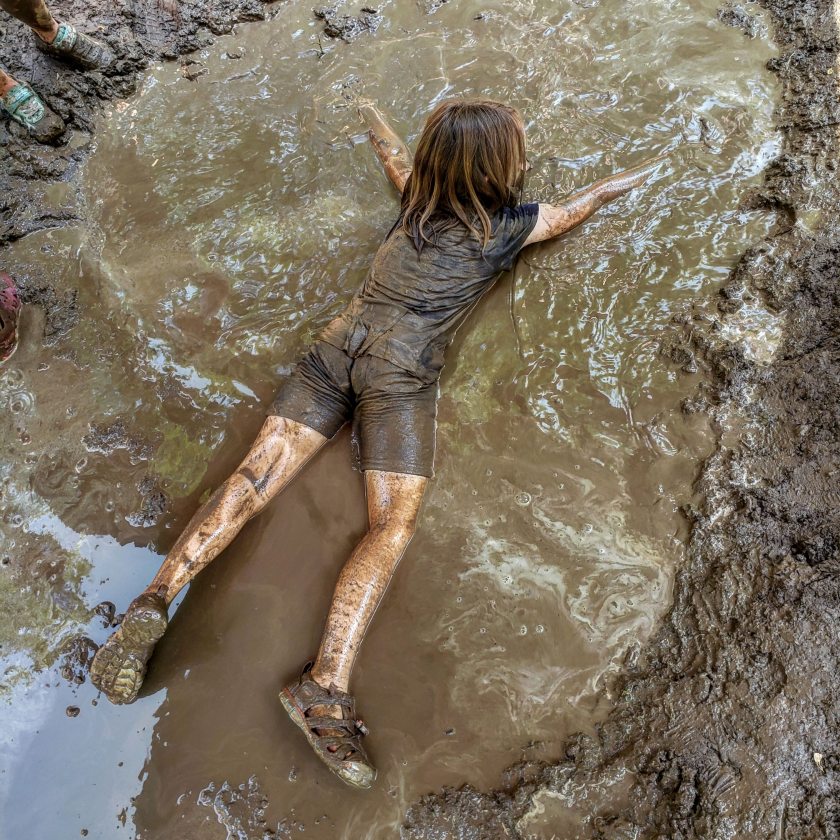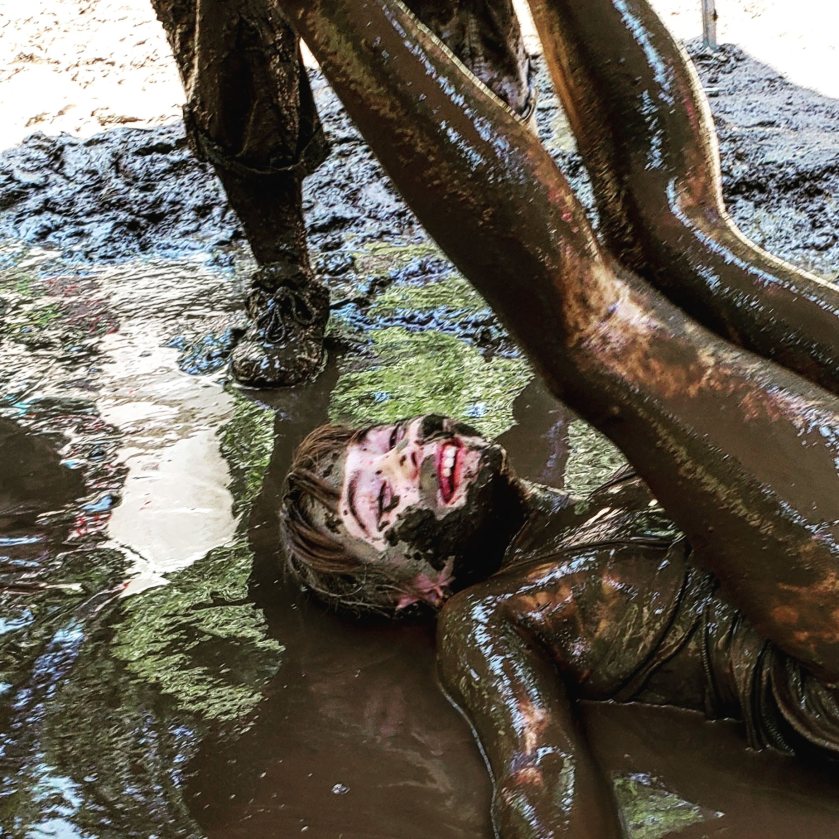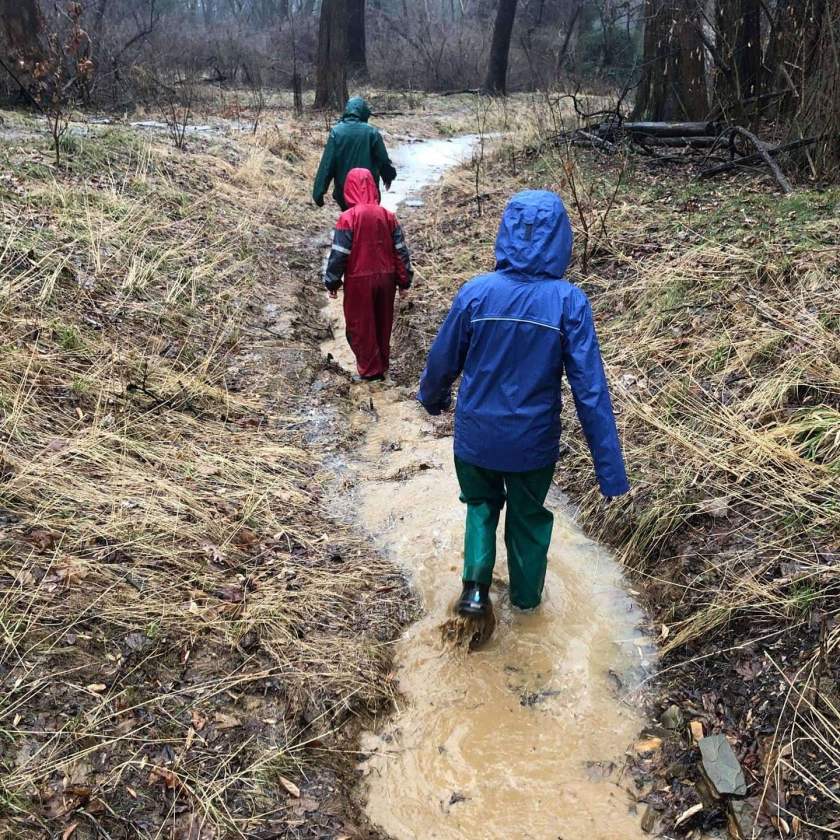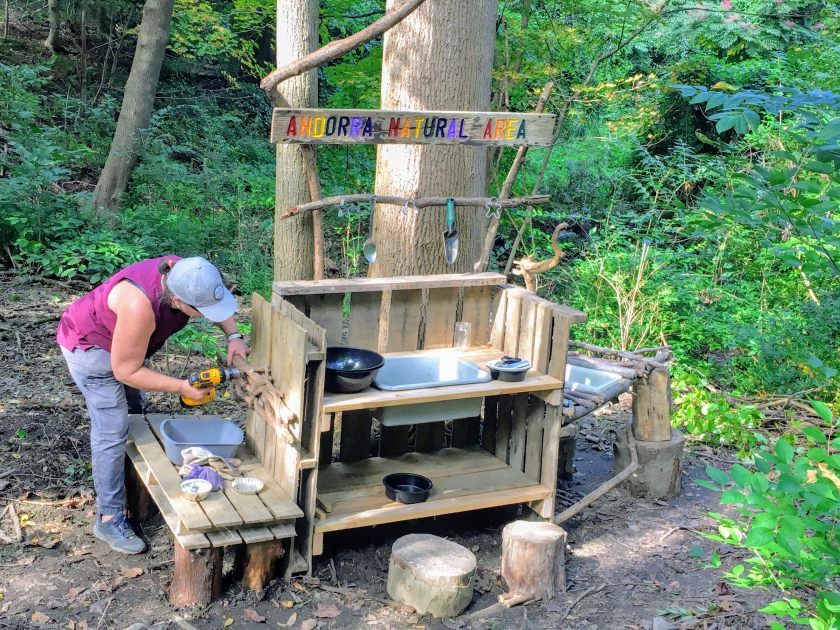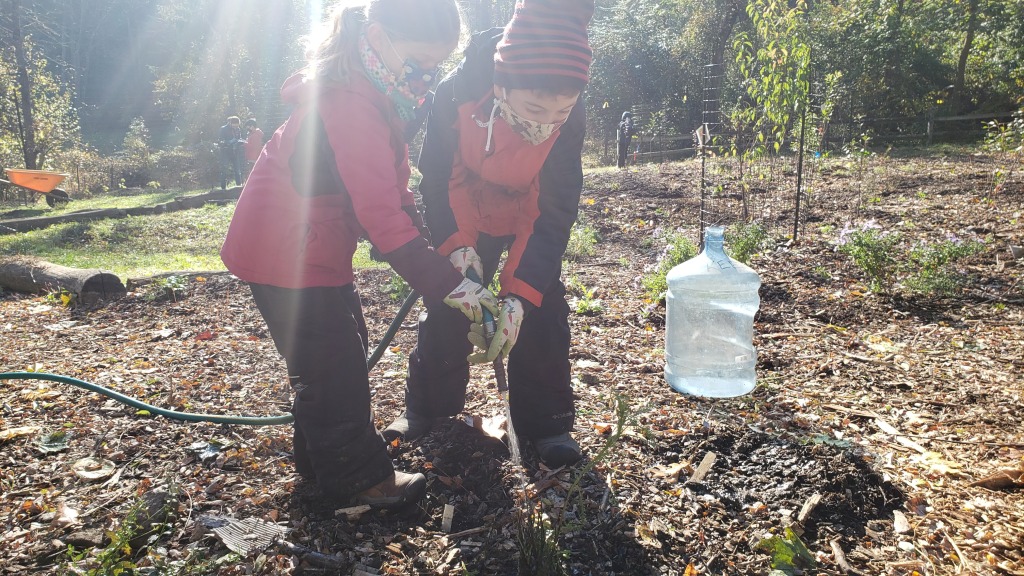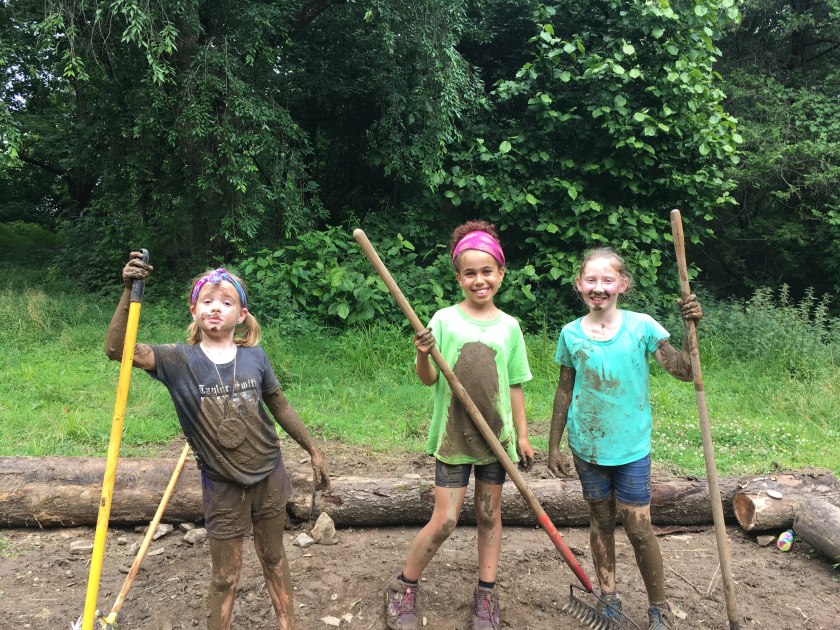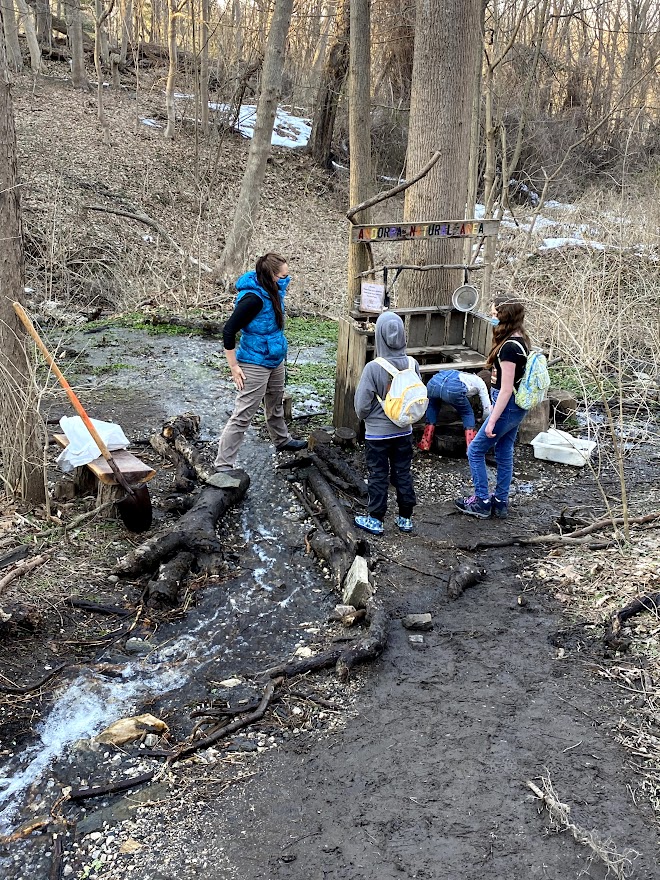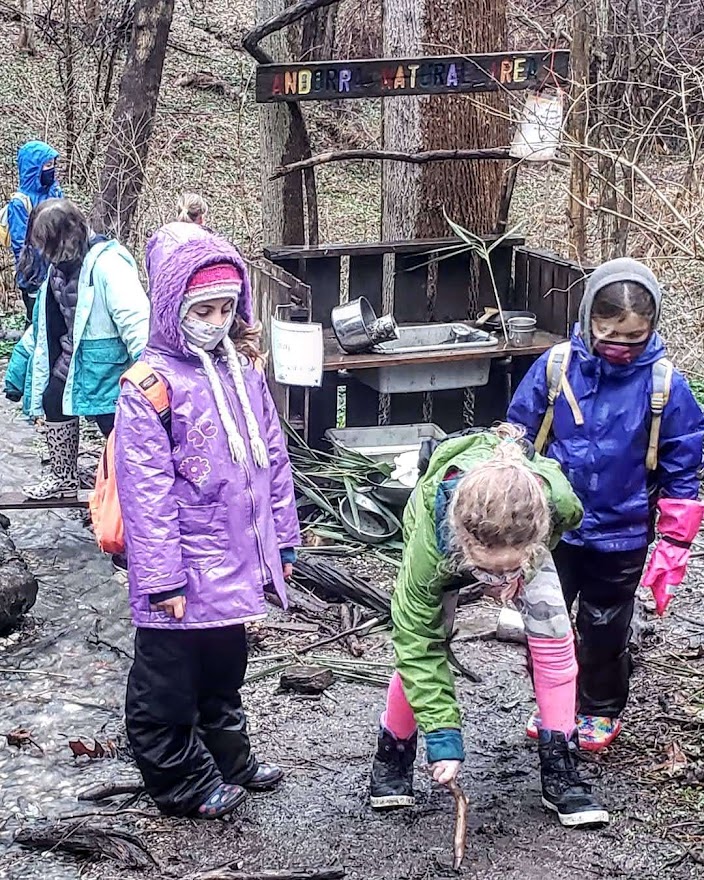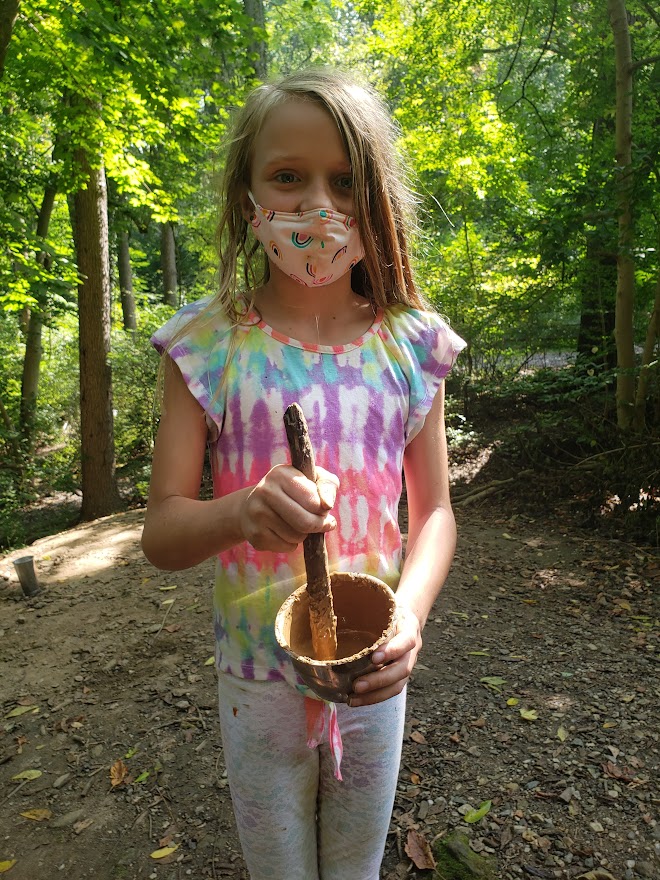Play is happier in the mud
March is a muddy month. A wonderfully squishy, mushy, wet muddy month.
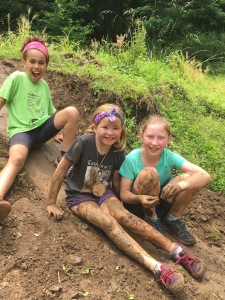
Have you ever noticed that when you hike through the forest or dig in the garden with your hands, something magical happens to your mind, body, and general well-being? You may feel happier, breathe easier, have greater focus, or get a spurt of creative energy. But is it magic or is there a scientific explanation for what happens when you connect with soil?
Mud (soil) is part of our everyday lives. We hike on it, grow our food in it, and touch it in some way every day. It contains living organisms, rock particles, minerals, decayed organic materials, air, and water.
In Philadelphia, our soil has an extra sparkle thanks to the flaky, glassy mineral called mica. The development of soil takes thousands of years. It is the base of all life and billions of organisms are in it. Soil is a water purifier, media for plants, habitat, organic recycler, and is a material for man-made structures.
There is a growing amount of research on the physical and physiological benefits of touching soil or mud for both children and adults. The science is complex, but while sorting through the research, I discovered that exposure to soil-based organisms, such as bacteria, strengthens the immune system. An initial study conducted in 2010 by Dorothy Matthews and Susan Jenks at the Sage Colleges in Troy, New York, found one bacterium in particular, Mycobacterium vaccae, which is in most backyard soil, increases the serotonin levels, also known as the “happy chemical”.
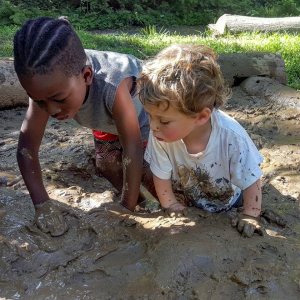
Although adults benefit from exposure to soil bacteria and outdoor play, it is most effective when exposure begins in early childhood and continues through adulthood. Although we are raising our children in more sterile environments than previous generations, the rate of allergies, asthma, and other inflammatory and auto-immune diseases are rising. Without exposure to “germs”, including bacteria in soil, the immune system cannot properly build itself. When babies instinctively put items in their mouths, it is introducing bacteria into their systems. As a child grows and has access to the soil through play, they are consistently building new immunities for a stronger, more complex system. This, along with all the other benefits of outdoor play, builds the body and mind in a more complete form. But whatever your stage of life, getting outside and getting dirty is as important as regular exercise. Luckily you can get everything you need at any of Philadelphia’s and Pennsylvania’s environmental centers and park systems.
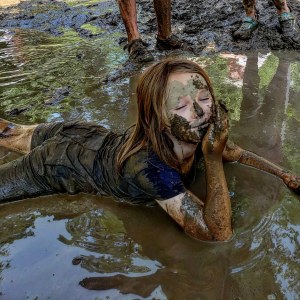
We foster exploration of nature with the senses, taking risks, and of course, getting dirty. If you are not a mud loving person or are unsure how you can incorporate dirt into your and/or children’s play, just ask any educator from your local environmental center! For more research-based information about the benefits of soil, play and nature for children, visit childrenandnature.org.
Photos by Christina Moresi from International Mud Day celebrations, and every day, all-weather play at Philadelphia Parks & Recreation's environmental centers.

